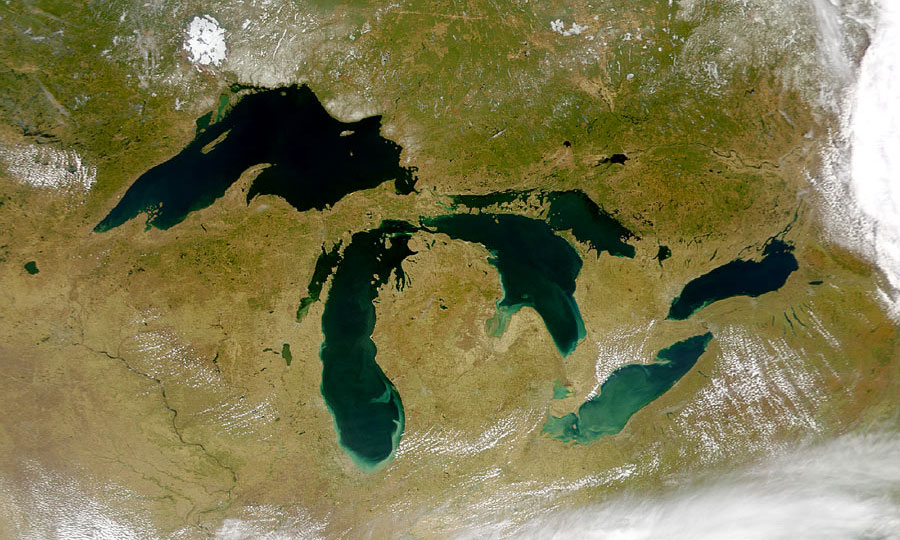EPA has released the RFPs for the Source Reduction Assistance and Pollution Prevention Grants programs.
Source Reduction Assistance Program Grants
Proposals due March 11, 2014
Download the full RFP at http://www.epa.gov/p2/pubs/grants/srap/srap14.pdf.
Source Reduction Assistance (SRA) awards are issued annually, subject to Congressional appropriation and the quality of proposals received. This Request for Proposals announces that EPA’s Regional Pollution Prevention (P2) Program Offices (herein referred to as the Regions) anticipate having up to $147,000 per region or up to $1,029,000 in total award funding to issue SRA awards in Fiscal Year (FY) 2014 to reduce or eliminate pollution at the source.
Collectively, the Regions are interested in funding projects that support five strategic goals of EPA’s P2 program — 1) reduce greenhouse gases (GHGs), 2) reduce hazardous substances, 3) increase resource conservation, 4) promote efficient business practices and 5) encourage P2 integration. Proposals will need to demonstrate P2/source reduction through surveys, studies, research, investigation, experimentation, education, training and/or innovative practices.
Proposals that principally support recycling, clean-up, treatment, disposal and/or energy recovery efforts (e.g., incinerating solid waste to generate electricity) will not be considered for funding. Eligible applicants include: the fifty states, the District of Columbia, the United States Virgin Islands, the Commonwealth of Puerto Rico, any territory or possession of the United States, local governments, city or township governments, independent school district governments, state controlled institutions of higher education, non-profit organizations (other than institutions of higher education), private institutions of higher education, community-based grassroots organizations, and federally-recognized tribes and intertribal consortia.
Note, Regions 1, 7 and 9 representing the U.S. states and territories of Connecticut, Maine, Massachusetts, New Hampshire, Rhode Island, Vermont, Iowa, Kansas, Missouri, Nebraska, Arizona, California, Hawaii, Nevada, American Samoa and Guam will not participate in this announcement and will not accept proposals under this competition. Projects proposed in these Regions will not be reviewed. However, applicants working or residing in Regions 1, 7 or 9 are free to propose grant work in a participating Region. Proposals should be sent to the appropriate Region where work will take place.
Region 5′s priorities are for projects that promote:
- Hazardous substance reduction through the use of environmentally sustainable tools, processes, practices and/or programs. Applicants are strongly encouraged to submit proposals that demonstrate new, innovative practices that promote measurable P2/source reduction efforts.
- Geographically-based initiatives and sustainable manufacturing through the use of P2. These projects must make use of initiatives such as Economy, Energy, and Environment (E3) partnerships or other local collaborations to provide technical assistance to the sector.
- Promote tribal college/university-based technical assistance programs that assist tribal facilities in preventing pollution through the use of tools that promote environmentally-sustainable processes, practices and/or programs.
Pollution Prevention Grants Program
Proposals due March 20, 2014.
Download the full RFP at http://www.epa.gov/p2/pubs/grants/ppis/2014rfpp2grant.pdf.
Under this announcement, the Regions are announcing the opportunity for states (i.e., state agencies, state colleges or universities), federally-recognized tribes, and intertribal consortia to submit proposals under the P2 grant program. Projects that will be funded are those that clearly demonstrate how using P2 concepts, tools or techniques can significantly reduce or eliminate pollution across environmental media (air, water or land).2 Under the authority of the Pollution Prevention Act of 1990 (PPA), the Regions anticipate that approximately $4.1 million will be available in FY 2014. Awards will be issued in the form of grants and/or cooperative agreements.
P2 grants are issued to provide technical assistance and training to businesses on P2/source reduction techniques. Acceptable grant activities will emphasize a coordinated and comprehensive approach for promoting and implementing P2/source reduction assistance. Such assistance may be delivered in the form of technical advice, on-site technical assistance and instruction, or certification or training on preventing pollution at the source. Grant proposals should highlight: 1) the recipient of the assistance activity; 2) the type of assistance being provided; 3) how, when and where the assistance will be provided; and 4) how the assistance will be tracked in order to measure performance. Real life examples of acceptable P2/source reduction assistance activities include, but are not limited to: providing on-site P2 training for small to mid-sized businesses to large manufacturers on Lean and Green concepts; helping businesses set up environmental management system protocols; providing educational workshops on P2 to businesses; offering P2 technical advice to state agencies or university staff who in turn use this knowledge to train businesses on best management practices; providing certification seminars to businesses; supporting recognition programs that honor businesses for promoting or implementing P2/source reduction techniques, etc.
Region 5’s priorities for this solicitation are to promote projects that:
- Develop sustainable P2 practices and achieve measurable results through hazardous substance reductions in processes and products, chemical usage, and/or extension of product life. Such projects would also result in greenhouse gas (GHG) reductions and costs savings. For example, the reduced use of hydrofluorocarbons and other high Global Warming Potential chemical solvents could result in dramatic GHG emission reductions, as well as hazardous substance reductions.
- Provide businesses with technical assistance in making their operations Lean and Green through initiatives like Economy, Energy, and Environment (E3), by-product synergy with a focus on hazardous substances, greening the supply chain, and/or other collaborative efforts. Projects should result in reduced energy, water and hazardous substance usage, reduced GHG emissions and reduced costs. Refer to link for more information: http://www.e3.gov/about/index.html.

